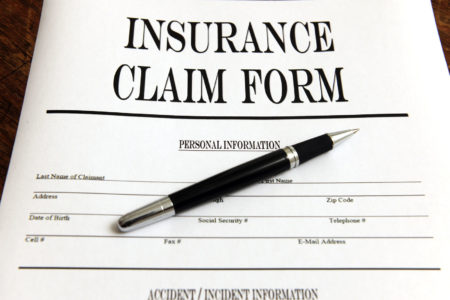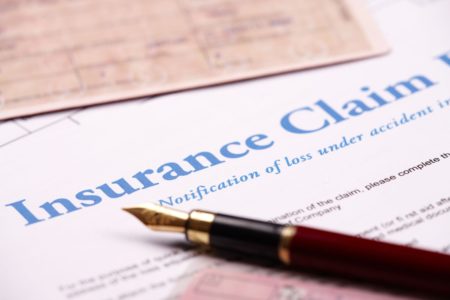Time Limit for Auto Insurance Claim

Free Car Insurance Comparison
Compare Quotes From Top Companies and Save
Secured with SHA-256 Encryption
Brad Larson
Licensed Insurance Agent
Brad Larson has been in the insurance industry for over 16 years. He specializes in helping clients navigate the claims process, with a particular emphasis on coverage analysis. He received his bachelor’s degree from the University of Utah in Political Science. He also holds an Associate in Claims (AIC) and Associate in General Insurance (AINS) designations, as well as a Utah Property and Casual...
Licensed Insurance Agent
UPDATED: Jan 5, 2024
It’s all about you. We want to help you make the right coverage choices.
Advertiser Disclosure: We strive to help you make confident car insurance decisions. Comparison shopping should be easy. We are not affiliated with any one car insurance provider and cannot guarantee quotes from any single provider. Our partnerships don’t influence our content. Our opinions are our own. To compare quotes from many different companies please enter your ZIP code on this page to use the free quote tool. The more quotes you compare, the more chances to save.
Editorial Guidelines: We are a free online resource for anyone interested in learning more about car insurance. Our goal is to be an objective, third-party resource for everything car insurance-related. We update our site regularly, and all content is reviewed by car insurance experts.
UPDATED: Jan 5, 2024
It’s all about you. We want to help you make the right coverage choices.
Advertiser Disclosure: We strive to help you make confident car insurance decisions. Comparison shopping should be easy. We are not affiliated with any one car insurance provider and cannot guarantee quotes from any single provider. Our partnerships don’t influence our content. Our opinions are our own. To compare quotes from many different companies please enter your ZIP code on this page to use the free quote tool. The more quotes you compare, the more chances to save.
On This Page
- Time limits for insurance claims are usually determined by your state’s statute of limitations
- This amount of time can vary from state to state, but usually, ranges from two to four years
- There can be different limits for personal injury and property damage claims
- Even when the statute of limitations is longer, it can help you to file your claim as soon as you have all the documents and information necessary
After a car accident or other incident, the amount of time that you have to file a claim could vary. One of the most important factors may actually be the state in which you live.
State laws can have a great deal of impact on car insurance policies. Issues like whether credit score or sex can be considered when rating or pricing a policy or whether insurance companies can sell direct to state residents or use an agent can all vary from state to state.
States can also mandate insurance-related penalties for breaking driving laws. Unlike these examples, however, in most cases, the time limit for filing an auto insurance claim, especially for a car crash, simply defaults to the state’s standard statute of limitations.
Because state laws tend to govern the time limits for filing a car insurance claim, you can shop online and compare all the options available to you in your state. You can compare coverage types and premiums to find the best deal for you and your vehicle.
Learn more about auto claims below and make sure to use our free insurance comparison tool above! Just enter your zip code and start comparing rates today!
How long can you wait to file a claim after a car crash?
In general, insurance companies may direct you to consult your policy for reporting guidelines for insurance claims. The type of claim can have an impact on the amount of time that you have to file.
However, each state generally sets a statute of limitations for claims related to personal injuries or property damages.
The statute of limitations presents the outer edge of the amount of time a driver has to file a claim about a crash that caused property damage or bodily injury.
Insurers will generally state that you should file a claim within 24 hours of a crash; however, while this can expedite an investigation, it is not required under state law.
While some state laws can refer to filing a lawsuit and others can refer to filing a claim, the statute refers to both lawsuits and insurance claims.
After the statute of limitations has expired, there is no requirement that any insurance company pays out for any car insurance claim.
While an insurance company could make the choice to pay a later claim, they are in no way required to do so, and you should make sure to file your claim well before the statute of limitations expires.
FREE Car Insurance Comparison
Compare quotes from the top car insurance companies and save!
Secured with SHA-256 Encryption
What if you’ve switched insurance companies since the crash?
It doesn’t matter if you’ve changed insurance companies later. As long as you were insured at the time of the crash, you can still file a claim under the policy you had at the time, so long as you are within the statute of limitations.
If you are considering switching insurers, you can compare information and policies from many insurers by shopping online.
Comparison shopping from the insurers available in your state can help you to find the ideal policy and best value to meet your needs.
Is there a difference between property damage and personal injury claims?
Again, the law varies from state to state. While many states have identical limitations for personal injury and property damage claims, some states have different time periods in which the two types of claims are allowed.
For example, in Kansas and Kentucky, the limitations period for property damage claims is two years, while for personal injury claims it is only one year.
In states like Maine and Minnesota, on the other hand, the limitations period for both types of claims stretches to six years.
Compare quotes from the top car insurance companies and save! Secured with SHA-256 Encryption
Should you wait to file a claim?
While you can wait to file a claim until the expiration of the statute of limitations, it can be in your interests to file your claim more quickly.
While you have a right to file at any time in this period, your claim is more likely to be fully successful when filed close to the time of the accident.
The longer you wait from the original time of the accident, the more difficult it is for the insurer to properly assess the damages and injuries caused by the accident and separate them out from other, later damages.
The payout you eventually receive could be smaller than the eventual amount of necessary repairs if damage is left to further degrade for a significant period of time, as only the original damage is covered by auto insurance.
Secondly, if you are unsatisfied with the payout offered by an insurer, you could still have time to pursue a lawsuit in court.
If the collision you experienced was the fault of the other party, you could sue them in court for a number of your damages exceeding the payout you received from their insurer.
On the other hand, if you were determined to be at fault, you could sue your insurer if you were unsatisfied with the payment amount.
In most states, however, the statute of limitations for a lawsuit is the same as that for an insurance claim.
If you wait until the end of the limitations period to file an insurance claim, there will be no remaining period of time to continue the action to a lawsuit if necessary.
Even here, state law is controlling. In some states with no-fault insurance, there are specific requirements that must be met before another driver can be sued for pain and suffering.
FREE Car Insurance Comparison
Compare quotes from the top car insurance companies and save!
Secured with SHA-256 Encryption
Could my claim expire or be terminated?
When you file a claim, the insurance company may give you a time limit, such as 60 days, to produce receipts, medical bills, police reports and other relevant documentation.
If you are filing a claim for damage to aftermarket parts, receipts and other documentation may be required.
If you miss the deadline, that part of the claim could expire. However, it is rare that this would cause the entire claim to expire; only the specific subject matter of the documentation in question would be affected in such a case.
When you first speak to your insurer to file the claim, this is a good time to go over pertinent questions about how long you have to produce relevant documentation.
Avoid Rushing When Filing Your Claim

It can be good to file your claim when you have all of your documentation in hand, including medical bills, police reports, photographs of the scene and other important information.
Keeping good records can be critical to your claim. However, it’s also important to ensure that you have been fully examined and all injuries documented, including potential later consequences of such injuries. It’s also important that all damages to your vehicle are fully documented.
You don’t want to file a claim too quickly and inadvertently leave out major damages or injuries that you simply hadn’t yet discovered when filing immediately.
It’s important to have comprehensive details and related information to file a full, accurate and timely claim. This will maximize your possibility for full compensation for the damages caused by the accident.
You can choose a coverage type for car insurance that meets your needs by choosing a car insurer online.
Shopping around can help you compare premiums, value, and coverage among the insurers available in your state and to select the best option for you. Use our FREE quote tool to compare now!
FREE Car Insurance Comparison
Compare quotes from the top car insurance companies and save!
Secured with SHA-256 Encryption
Brad Larson
Licensed Insurance Agent
Brad Larson has been in the insurance industry for over 16 years. He specializes in helping clients navigate the claims process, with a particular emphasis on coverage analysis. He received his bachelor’s degree from the University of Utah in Political Science. He also holds an Associate in Claims (AIC) and Associate in General Insurance (AINS) designations, as well as a Utah Property and Casual...
Licensed Insurance Agent
Editorial Guidelines: We are a free online resource for anyone interested in learning more about car insurance. Our goal is to be an objective, third-party resource for everything car insurance-related. We update our site regularly, and all content is reviewed by car insurance experts.
